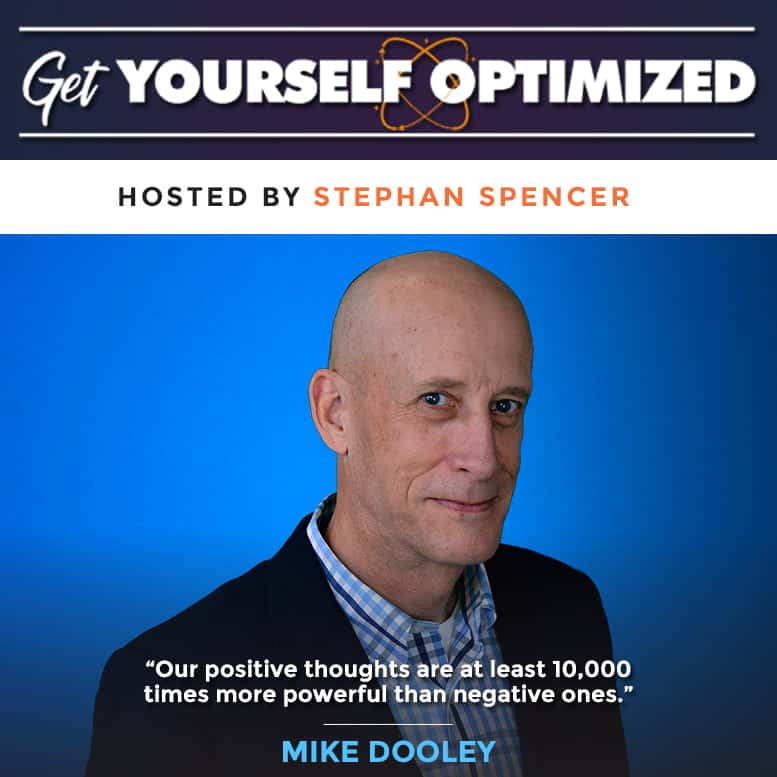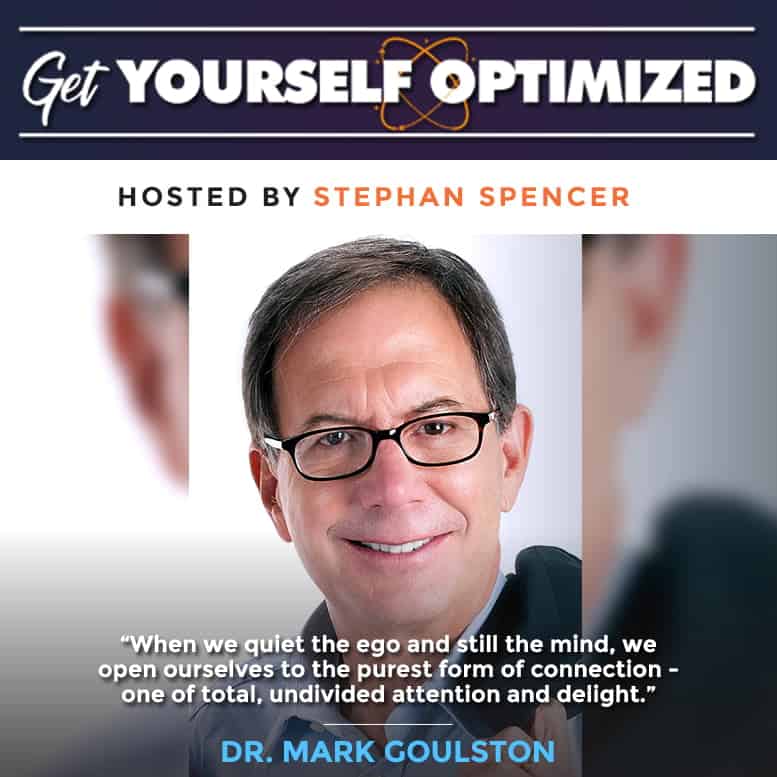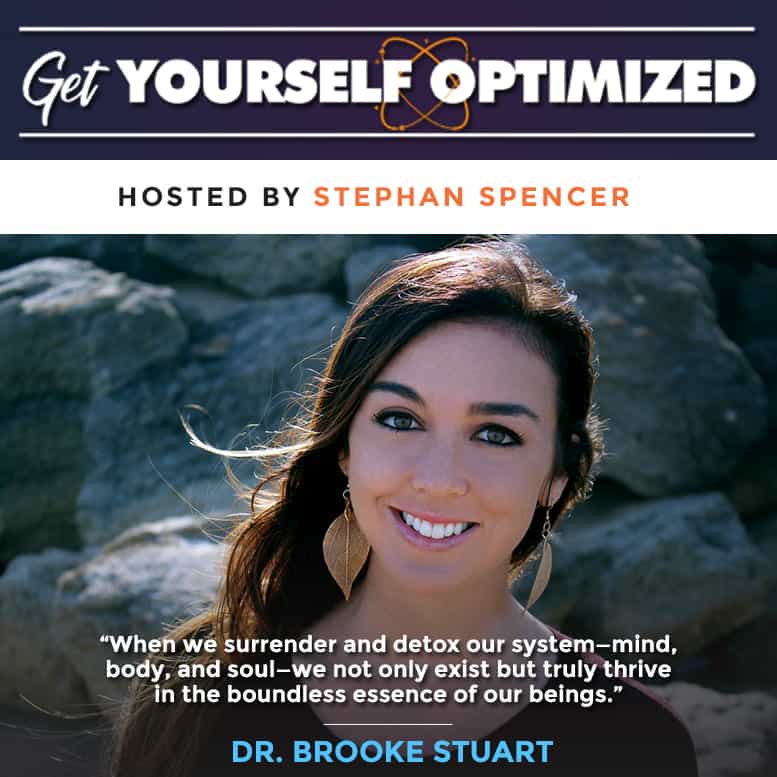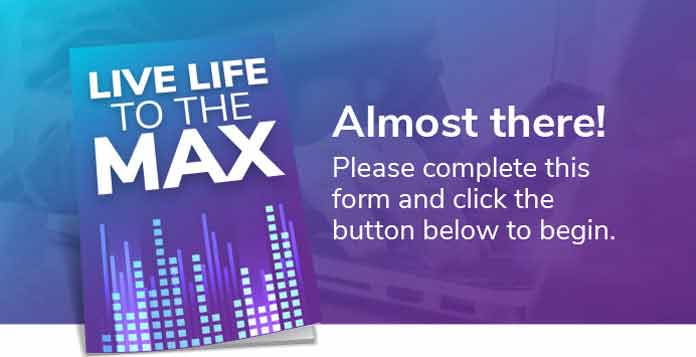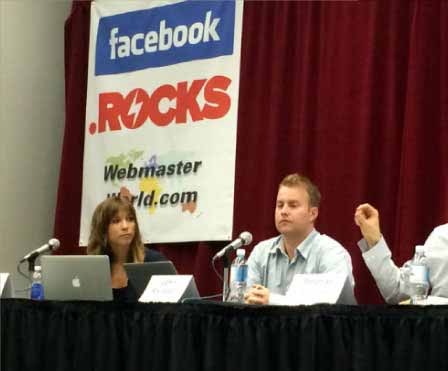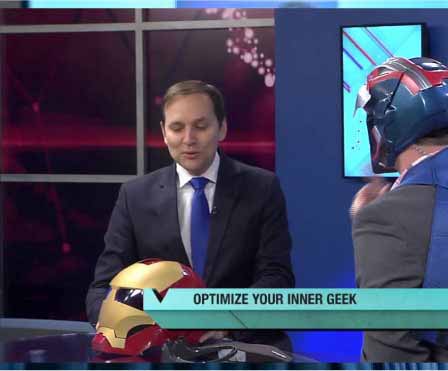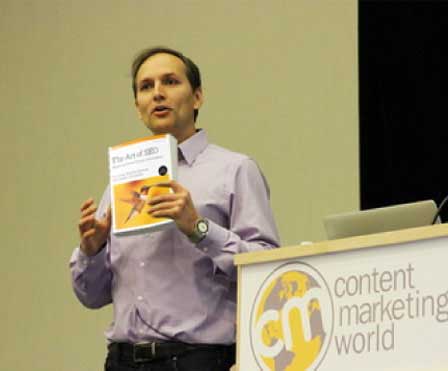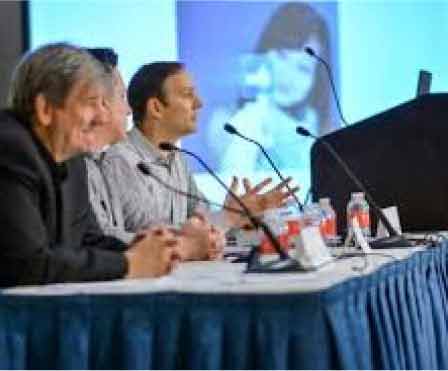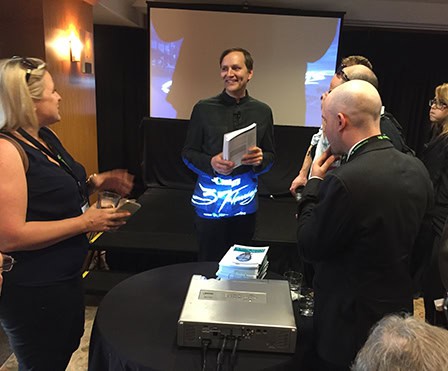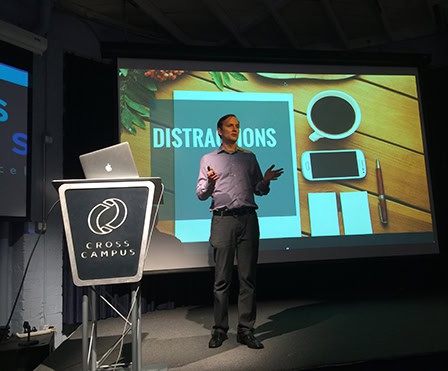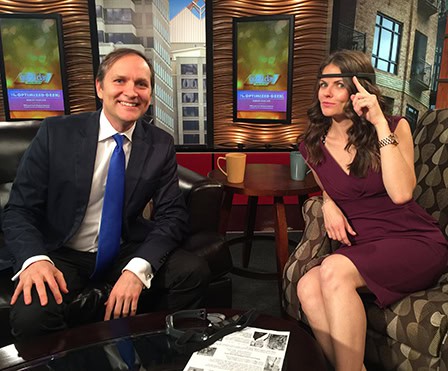Transcriptde
Alex, it’s so great to have you on the show.
Thanks. It’s a pleasure to be with you, Stephan.
Let’s talk about rest. I know it’s important to you, you wrote a whole book about it. Why is it important to our listeners?
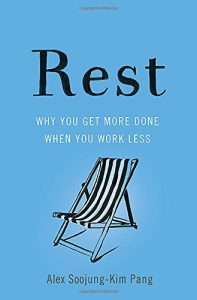
Rest turns out to play an important but hidden role in the lives of really creative and prolific people. Over the last few years, there’s been a lot of work in neuroscience and the psychology and creativity that has explained why this is and exactly how it works and how rest can be layered in our daily schedules in order to complement each other rather than to be competitors in our daily lives. When you look at the lives of creative people, people like Nobel Laureate, famous composers, and scientists, what you find is that these are people who are incredibly ambitious. They are often in very competitive fields, they want to do great work, and they devote their lives to their work, but they don’t spend their entire days working.
In fact, the very best of them can spend as little as four or five hours composing, doing experiments and so on. The secret to their productivity is that they combine periods of really intensive, focused, uninterrupted work—the kind of work that’s increasingly difficult to get into in our always-on smartphone-besotted lives—with periods of what I call deliberate rest, which is the time that gives someone an opportunity to recharge their mental energy and physical energy but also gives the creative mind and the subconscious a chance to keep working on problems that have occupied our conscious attention but we haven’t been able to solve.
What every accomplished people turn out to do is to develop schedules that allow them to balance that focused time with these periods of rest, that allow them to get more done on a daily basis, and then they also take rest seriously enough to respect things like weekends, to take vacations and sabbaticals on a regular basis. This helps them do better work and also allows them to have longer or have a more sustainable and creative life. They don’t burn out in their 20s or their 30s, but rather they’re able to keep working into sometimes their 70s or 80s. That’s why rest is important.
That’s pretty compelling. It might be hard though for some folks to work in, let’s say, a sabbatical or even just a vacation. We have a friend who lives next door to us. She spends essentially four days traveling through Asia on this insane tour, it was a road race sort of thing and she didn’t get more than maybe four hours of sleep a night for 40 days straight. How do you tell your employer, “I need to take a nice, long vacation,” when those are the kinds of schedules you have to work with?
We should break it out into a couple of things. There are things that almost all of us can do and do better regardless of our employers, so let’s start with those. The first is that Americans do a terrible job of taking vacations. There are tens of billions of dollars worth of vacation days that get left on the table every year and we do this partly because we have this sense that we are indispensable or we want to prove that we are really dedicated to our jobs and loyal to our employers. Consequently, we don’t take the vacations that are coming to us. We tend to assume that we can just power through, that there’s no downside to staying at work.
Rest plays an important but hidden role in the lives of highly creative and prolific people. Click To TweetIn fact, there is a huge body of research that shows that people who take regular vacations live longer, they’re healthier, they are less prone to chronic disease, they even have better mental health in the later parts of their lives. They’re less likely to have things like memory problems and dementia.
For individuals, learning to take things like vacations, just detaching on weekends, turning off your cell phone for a day, to take that seriously and to see that as something that is worthwhile. That it is an investment in yourself and an investment in your capacity to be productive and to do good work. It’s a useful thing and a useful discipline.
At the organizational level, it’s absolutely the case that there are employers for whom the arguments in favor of wellness or rest are less compelling to them than the value they think they can get by running people ragged, burning them out, and then replacing them. There are some businesses that genuinely are built on this model. There are a certain number of people who go into, for example, investment banks or tech companies, who companies assume will either go on to do other things with their careers or they will be replaceable in two or three years by the next crop of young energetic college graduates.
There are a host of reasons that organizations make it challenging for us to make room for rest. It is the case that we need to acknowledge that there are hard limits to what we are able to do on our own to be better rested just as it’s difficult for us to be in a more productive or more focused in environments that are constantly trying to distract us or fill our days with meetings.
The other reason for us taking rest seriously is that when we have things like those four country trips—I’ve had those myself—where it’s Tuesday and you’re in a different time zone in a different country, the ability to do that kind of intensive work depends in part on being rested before you go into them. For those of us who face periods where that’s going to be part of the job, taking rest seriously at other times during our working lives becomes even more important.
I was just having a conversation with a friend of mine who is also a big podcaster and he just got married. His new wife is working insane hours, like from 7 AM until 11 PM at night and it’s affecting the quality of their home life. I’m sure it’s affecting her health and stuff; she agrees that it’s not sustainable. What would you tell her when she has this pressure?
There’s a calculation that we all make under those circumstances about how long it’s going to last, what the pay-off is going to be over the long term. We’re really good at rationalizing that, if you do this for a couple of years then you’ll get the big promotion, you’ll be able to move up, things will get easier. Unfortunately, what is often the case is that even if you do move up in an organization, things don’t actually get that much easier any longer.
There’s a fantastic new study of mental health among entrepreneurs and startup founders that finds something like 50 of them has self-reported significant mental health challenges that range from ADHD to depression and suicidal thoughts. It turns out that the ones who are successful have a whole second set of problems. They are more subject to narcissistic personality disorders to imposter syndrome to a bunch of other things that turn out to be triggered by suddenly becoming really successful.
The first thing to ask is, can we take a more clear-eyed view of whether these sacrifices are worth it over the long run? Sometimes, the answer turns out to be no and we’ve got to make course corrections and figure out other ways to move our careers forward. Another thing, though, is to recognize that there are careers in which work-life balance is capable of playing out but it plays out over a much longer period. It’s something that plays out over years rather than days. We tend to think of work-life balance is something that is achieved between the time that we wake up and the time that we go to bed.
I know a fair number of people and some extremely successful and accomplished ones, for whom that balance was something that actually was impossible to achieve at a daily or weekly level, but they were able to build a rhythm to their work or their careers that gave them a chance to do things like taking a semester-long or a year-long sabbatical, that they devote it to spending time with the kids rather than spending time in the laboratory. If you’re in a career in which those kinds of breaks are a possibility, then you make your calculation a little bit differently.
I do think that it is absolutely the case that we are in a world in which it is increasingly difficult to find that time to achieve those kinds of balances and most companies don’t make it easier for us.

It’s certainly a lot easier if you’re the business owner. I’m a business owner and I did take a five-month sabbatical about a decade ago, maybe it was actually 12 years ago now but I haven’t taken a long one like that since. I do feel like I have a lot of vacation time and travel time for fun. My wife and I would go to all sorts of amazing places. We’ve been to Egypt and Romania, Transylvania and all that, Copenhagen, etc. We do take time to vacation and some of it is work-cation, vacation that is combined with some business, client visits and things like that.
A sabbatical is something that, I would say, for many of us, seems like a foreign concept, unless you’re in academia. You’ve probably never even seriously entertained the idea of taking multiple months off like four, five, or six months off. Is that something that you’ve taken or a lot of people in your network have taken?
Yes. Unfortunately, this is something that, at least in some large companies like Microsoft or PWC, is actually emerging as a recognized end-of-career step. Not just as something that you do for work-life balance but that you might do partly in order to reset or recharge your batteries. And also because the company begins to realize that there are things that you can do with that time that are going to be helpful in the second half of your career. I had a three-month sabbatical at Microsoft Research Cambridge, eight years ago in 2011, and for me, it was life-changing. The work that I did there has planted the seeds for the next two books that I wrote after that, and it was extremely important for me, not just for professional reasons but for personal reasons as well.
If we have the opportunity to do that, it is something that is absolutely worth doing and that fortunately, a larger number of organizations are starting to make provisions for. You had mentioned vacations. I was curious how often do you take vacations or how often do you go on these kinds of trips that might mix some work and some pleasure?
Well, I’m traveling a lot. Much of it has been with my wife, so I’d say more than half, certainly.
That’s awesome. I mean part of the reason that I ask is that there’s been some interesting work on different kinds of vacations and vacation schedules and what makes actually for restful vacations. We all have the experience of coming back from a vacation and feeling like we need some time off in order to recover from it.
One of the interesting things that people researching this have found is that the benefits of vacations tend to last about two months or so, the psychological boost that you get from it. It goes away after about two months. However, the happiness and the charge that we get from vacations, peaks after about a week or so. If you’re on vacation for three weeks, you’re not three times as happy as you are after day eight or so. In an ideal world, if you had complete control over your schedule and you wanted to maximize your happiness, you would take about a week’s worth of vacation about every three months or so.
People who take regular vacations live longer, are healthier, are less prone to chronic disease, and even have better mental health in the later parts of their lives. Click To TweetNow having said that, the only really bad vacation is the one that you don’t take. The other thing that turns out to be significant about vacation is being able to do things that allow you to exercise some control over your own time. Anybody who’s gone on vacation with kids has had the experience of being at the beach but never having a minute to themselves. While that gets you out of the office, it is less restorative than the kind of vacation where if you are able to work out with a spouse or other people you’re traveling with that you have some time to yourself, you have some control over what you do, that turns out to be really important for making vacations restorative.
A whirlwind tour through Europe that’s very structured and jam-packed with stuff and very regimented does not sound at all relaxing.
If that’s what you really like, then go for it, and if that’s the only way you can justify getting away, then yeah. As I said, it’s really hard to come up with the vacation that’s genuinely bad for you, but the total whirlwind where you’re trying to do four things a day, and you maybe feel a little bad if you miss one of them or if it rains and your view from the dorm is not perfect, is less restorative than something that is a little more relaxed. It doesn’t mean that you do absolutely nothing, but rather you throttle back a bit, you might do one big thing a day and then the rest of the time you see how the day goes. See what’s interesting and see what you are interested in.
Vacations like that tend to offer both more surprises and offer a greater degree of relaxation and restoration than ones where you feel like you’ve got this long list of things that you absolutely have to get through. The failure to get through that list is itself a source of tension and can make vacations less restorative. Give yourself time, try to strike a better balance and actually allow yourself to do nothing sometimes when you’re on vacation.
Can we measure the restorative effect that the vacations, or the sabbaticals, or even just the weekend off can provide?
Yeah. Let’s put it this way. If you’re a psychologist and you have a phlebotomist who can draw blood and measure biomarkers and stuff, you can measure that with a pretty good degree of precision. As ordinary people, you can measure for yourself in basic things like blood pressure and heart rate, if you really care to do that. If you’re into that kind of quantified self-stuff, you’ve got a smartwatch, then, you can actually see that kind of change.
For most of us, the real measure is in how we feel about ourselves and our work when we come back from breaks. The important thing is that while there are ways that scientists can measure these things, biologically and physiologically, what really matters to most of us is how we feel and how we perform before a break and after a break.
Okay. I’m a real geek, I admit it, I’m very much into the quantified self-movement. Listeners, by the way, if you are, too, definitely check out the Lisa Betts-LaCroix episode where we geek out a lot about quantified self. One of the things that I wear all the time is an Oura ring and I’m tracking my sleep, not just sleep, but deep sleep, REM sleep and all that. I am also tracking heart rate and HRV, heart rate variability. I’m curious if looking at let’s say you’re HRV over time is a good measure of whether you’re getting the restorative benefits of this rest or not.
Two answers. Number one is how accurate these devices themselves are? At least the last couple of times I’ve been to things like national sleep foundation conferences and such, people within the field are still arguing over once you get above things like basic heart rate, how reliable is this data?
The second thing is, people continue to argue over whether resting heart rate, whether other measures are the best indicator of how relaxed you are and how relaxed you are after a certain recreational activity. However, what we’re talking about is something that is complicated enough so that it’s not merely biological and that, at least for me and for the people I trust, who play around with these numbers, is they treat them as arrows pointing in a particular direction as opposed to baselines that they will be disappointed with if they don’t meet after a week or 10 days away.
One person who spends a lot of time with this tells me, “You don’t want the numbers themselves to become a source of anxiety or disappointment in your quest to reduce your anxiety and disappointment.” Treating them as broad indicators as opposed to discrete goals is probably best for most of us.

It’s just directional. It gives us a sense of if we are heading in the right direction but it doesn’t set us up to feel anxiety. Like I did this morning when I checked my sleep score and it was really low. It affects me, it really does, and sometimes I feel like I don’t want to even know what the number was.
Maybe in 10 years, we have a much bigger body of data that can allow us to talk about these things more precisely, but right now the directional stuff is really the stuff that matters most.
How does this show up for somebody who just wants to have more restoration and more focused ability to get into a deep work state or flow state? Are they going to change certain behaviors throughout the day? Are they going to use maybe the Pomodoro method and take five-minute breaks every 20 minutes? Or are they going to not eat at their desk, take a proper lunch hour or leave at a decent hour? What are all the different best practices that you would say that our listeners should aspire towards?
First off, focused intensive periods of work beat long hours in virtually all kinds of work. Certainly, in knowledge work, it’s the case that people are able to concentrate pretty well for about 90 minutes to two hours or so before they need a break. Pomodoro is a slightly faster version of this, but the essential intention there is you’re treating work periods almost like high-intensity intervals of exercises. You try to dive in deep, work intensively, then take a break pretty immediately in order to recover, and then you go back to it. That turns out to be a way to increase your productivity and also to work in a more sustainable way.
I just finished a book on companies that have been finding ways of giving people more rest and one of the really interesting things I’ve seen there actually is, in a lot of these companies, people develop just organically the practice of eating together. One of the things that’s happening is that they’re setting aside blocks of time for really focused work, nobody has to answer questions, you can ignore the email or the Slack channel or what have you.
What happens is that work intensity increases, but also in the downtime, social intensity increases. There were a bunch of studies that indicate that offices or groups who share meals actually perform better as teams. This is actually one of the things that you look for among firefighters. Fire engines, firehouses where people cook together actually perform better than the ones that do not because there’s all kinds of really interesting social stuff, coordination, team building, and camaraderie that happens when you cook together. Fighting sad desk lunch turns out to be a surprisingly powerful thing that all of us can do.
Focused, intensive periods of work beat long hours of all kinds of work. Click To TweetAnother important thing that I am seeing people doing is ring-fencing the time that they hold meetings or deal with email. This can be important enough so that companies make this virtually a policy, that they don’t hold meetings until the afternoon. People have particular times of day when you try to clear out your inbox and the virtue of that is that it allows you to focus more on longer, more complicated tasks and backs you away from having to wonder whether there’s something sitting in your inbox that people are going to expect you to deal with even though you’ve got this other important stuff going on.
I’ll just flag one more thing happening during the workplace which is napping, which is a great example of something that looks like it’s incredibly unproductive, but it turns out that a 15-minute or 20-minute nap, generally not much longer than that, is really restorative and that it is as effective or more effective than yet another cup of coffee and it doesn’t have the downside of making your jittery. This is why when you wander around Google or Twitter, you see nap pods in various odd places, and usually, when I pass one of those, I see people in them. Those are all examples of practices that you see people in Silicon Valley doing often with their smart band and they’re trying to measure the benefits of that.
You also see versions of this in the daily lives of people like Ernest Hemingway, or Charles Darwin, or Ludwig Beethoven, all examples of people who did stuff like really focused periods of work, naps and so on. These are all things that turn out not incredibly difficult to describe and once you get into the habit, not that incredibly difficult to do, but which turned out to have really significant benefits for both your productivity, your happiness, and your physical and mental health.
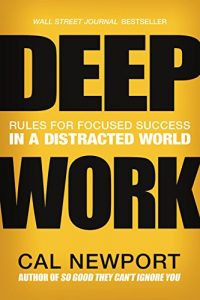
And separating the work environments or at least the deep work environment from the other stuff also can be quite helpful like Carl Jung, for example. He had a separate place where he saw patients and then another place where he did his writing and his deep work, deep thinking sort of stuff that was written about in Cal Newport‘s book, Deep Work.
Jung is also another example of someone who would work for a few hours and then go out for a really long walk and use that time to casually turn over ideas in the back of his mind that he’d been working on. Often he would have insights while he was out there that he incorporated back into his work either that afternoon or the next day. The other important thing that this point raises is that we live in a world in which we think that the boundaries between work and life, between work and play, has been a race and that this is either a good thing or unavoidable because we now carry our offices around in our pockets at home and we carry Netflix and YouTube around with us at work.
However, boundaries turned out to be a really good thing. Having a time when we can focus on really deep work, having time when we can deal with stuff like meetings in our inboxes, and then time for social activities and time with family and having those be more separate turns out to make all of them better and it makes our lives better as well. Resisting the idea that we have to run all of these things together, that we have no choice, and that jumping between these modes is either good for us or the way that things have to be, both turned out to be incorrect. It is possible for us to find or build useful barriers that allow us to be better workers, better parents, and better people.
There’s a lot of good stuff there. I’m curious what your thoughts are on some brain app that helps you get into a focused state like Focus@Will, for example. I had Will Henshall on this podcast talking about streamline music and how that helps you stay in a flow state for much longer, like a typical Pomodoro would be 20 minutes but you could do a 60-90 minute even Pomodoro if you are listening to streamline music and maintain that focused state.
Two thoughts. Number one is that there is an awful lot of value in people figuring out these practices for themselves. Figuring out what works for them. I know a couple of offices that have Focus@Will subscriptions and swear by them. I spend a pretty fair amount of time thinking about what music is useful to me at different times of day when I’m working or that encourages different sorts of mental states or levels of energy. In the super early morning when I’m writing—I’m someone who gets up at 5 AM in order to write—I listen to Bach’s harpsichord music. Single instruments, not complicated compositions. Generally, stuff that can reside in the background of my attention.
Later on in the day, I tend to shift to soundtracks. I really should thank Hans Zimmer in the acknowledgments to my books because I listen to an awful lot of stuff like Pirates of the Caribbean, Dunkirk, and other soundtracks. That’s great music for me because I’m one of those people who, if I’m listening to music with lyrics, I listen to the voices, but also because that’s music that is designed to excite people without distracting from the other action going on, on-screen. For me, that serves a really useful purpose of helping me subconsciously boost my energy level but without distracting me from the task at hand.
Treating things like where to focus and flow, not as things that we should try to achieve through like external therapeutic means, through taking a pill that would put us in that state. Thinking of it as something that flows from the knowledge of how we work. Knowledge of our attention levels, what distracts us, what doesn’t, and then crafting our workplaces, crafting our routines accordingly, is a powerful and a more sustainable way of approaching the search for things like focus and flow. In other words, try out these tools, but the ultimate purpose is really to know yourself and to be able to trust yourself so that you can do it yourself.
Sounds like you are doing it yourself even in trying to figure out what is streamlined music and what isn’t so that you don’t have to rely on an app. Although most people probably would prefer to just have essentially a Spotify where they can pick a genre or type of music and not have to worry that it’s going to knock them out of their flow state, it’s all streamline music which I guess is the whole premise of Focus@Will.

Exactly.
I’m curious, do you theme your days? There are multiple models like that like Dan Sullivan. He has focus days, free days, and buffer days, and he makes sure to stress that free days are not earned. You didn’t put in a lot of hard work and create some outcome, therefore, you get to have some free days. No, you have to take the free days because that’s how you can function.
Also, Mike Vardy got team days as well, but it’s a little more complex than that. I am getting coaching from Mike, actually. He is a productivist, he’s been on my podcast as well. Great episode, by the way, listeners. Because of my work with Mike, I have deemed Friday as a deep workday. Unless it’s an emergency or something, I don’t book calls. I don’t do podcast interviews or anything on Fridays because that’s a deep workday, and I’ve gone in and labeled all sorts of tasks in my to-do list manager as deep work. Then I can just filter by that tag or that label, see all the deep work tasks and pick stuff to work on that I do on Fridays.
It is awesome to have a practice that you can stick to. That is essential, especially in the world that we live in, it has a million different ways to capture and commoditize our attention. For me, when I’m working on a book, I’m one of those people whose level of attention and creativity really rises and falls pretty substantially during or throughout the day. My schedule is much more of a daily one as opposed to a weekly schedule.
As I mentioned, I get up super early and write. I’ve got a couple of hours during the morning around which I’ve built a fairly elaborate morning routine, and during that time, I get done most of my really good writing. Then I take the dogs out for a walk, that’s an opportunity to get a little exercise and also for my mind to turn over ideas to work on, to think about sections that I’m working on or organizational issues. I’ll often come up with some kind of a solution while I’m out with them, and then the next couple of hours when I come back is devoted to working through that stuff.
And then the afternoons, after lunch is much less focused work. It’s like talking to my agent or working on pieces that are less intensive, doing various kinds of work that are essential but don’t require being in like a deep state of mind. I find doing that every day, setting up that rhythm for me is a really valuable way of starting and maintaining momentum. It also just makes me happier. I’m one of those people for whom flow is a very important part of their lives. I won’t say it’s a drug, that’s not exactly the right way to think about it but it has certain drug-like properties.
It gives you a high.
Exactly. I like it enough to want it every day and also in contrast to some other things I like, I like it enough to actually work for it.
Awesome. What you described sounds fantastic and it actually very much coincides with what Mike Vardy teaches with the theming because it’s not just vertical theming, he teaches horizontal teaming, which means that you’re going to do something from 9 to 10AM every day of the week, that’s what he’s calling horizontal theming and it sounds like you’re doing that as part of your daily routines.
Yeah, though probably my working life is simple enough so that not having to have a lot of vertical theming works for me. If I were in a different circumstance, then you would need different tools. That’s one of the other reasons to learn that self-awareness to build these tools is that our lives change. Our energy levels rise and fall not just over the course of our days but over the course of our lives, and we need to be able to adapt to those kinds of changes if we want to continue to do the kind of work and live the kinds of lives that make us happiest.
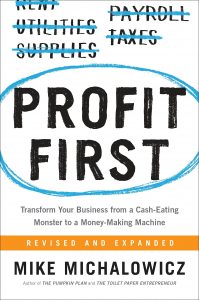
Let’s talk about how we incorporate this into our lives. I’m in the process of reading or actually listening to the book Profit First by Mike Michalowicz. It’s a great book. I’m really enjoying it and actually I’m going to have Mike here on the show here. I was wondering what the methodology is for rest first, to bake that into your days so that it doesn’t end up being an afterthought?
Profit First is all about you take your revenue minus your profit and that equals your expenses, which is completely turned around from the way that most businesses operate of revenue minus expenses equals profit. Like, “Oh, look at that. I actually made a profit this year. Wow! That’s amazing.” They’re surprised by it, like “What?” You actually want to build it in and I would think in a similar fashion want to build in the rest and what Tony Robbins says, “Only when you schedule it do you make it real.” What do our listeners do to make this real, put rest, bake it into their daily schedule, and live by it, abide by it?
Tony Robbins is absolutely right. Our schedules reflect our priorities and our realities. The first thing I would advise is we do have to take rest seriously if we’re ever going to get it. The idea that you’ll rest when you’re finished with everything is great, except no one ‘s ever finished with anything any longer. First of all, recognizing that just like exercise, just like working out, which is actually a really good form of rest even though it’s not like laying on the couch with a remote in one hand and snacks and the other, which is what we imagine rest to be, something that’s entirely like passive or physically undemanding.
Actually, forms of rest that are active, engaging and challenging are really restorative and good for us. Recognizing that we have to take them seriously and we have to schedule them is step one.
Step two is recognizing that even small increments of rest strategically deployed can be super beneficial. The five-minute break in the Pomodoro, the lunch hour, the 20-minute nap in the early afternoon when your energy and your attention are really flagging. Those things can make a measurable outsized difference in your productivity and your happiness.
Most of us face bigger challenges with things like getting enough sleep unless we happen to just naturally fall asleep when we’re tired, but again, this is the kind of thing where investing in habits or habit formation for a few weeks is often enough to get us moving down the right path.
It’s also important to recognize though that as valuable as it is to work on this stuff by ourselves, to develop our own capacities for flow, focus, and rest. These also have a significant social dimension to them that we often overlook and which put hard limits on our capacity to sustain these good habits, to the degree that we are able to do things like promoting a practice in the office, of having set aside focused time of eating together, of ring-fencing things like email and so on. Making those organizational habits when we have the ability to influence them can be incredibly valuable because things like attention and flow have a significant social dimension to them.
A 20-minute nap is more effective than having cup of coffee. Click To TweetYour capacity to focus depends on my willingness to not interrupt you and it’s just like going to the theater. The ability to enjoy the show, to be immersed in the performance depends on your neighbors not talking on their cell phones, depends on all of us agreeing that we will be quiet, we’ll behave in a certain way.
Elevating our thinking about these issues to recognize that there is this social and organizational dimension that is challenging in a different way to deal with and to implement but which we can in fact influence, that we can in fact change is the next really important thing that those of us who were interested in focus, in being more productive, being more effective, and having better lives, we need to turn our attention to.
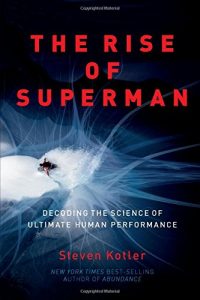
That reminds me of when you’re talking about the social implications when people interrupt you, that knocks you out of flow state, and then I was thinking on the flip side actually, social interactions can trigger a flow state. There are these different flow triggers that were written about in the book The Rise of Superman and some of those are social triggers.
I’m curious what your thoughts are on those kinds of triggers that get you into a flow state and what sort of things can somebody do as, let’s say, a business owner or the manager of a department, to facilitate that kind of social triggering of flow and deep work.
That’s really interesting, and I have to confess, this is not something that I’ve seen companies trying to do yet in a systematic, organized way. This is an opportunity that has yet to be exploited; that’s my answer.
Okay. The article that summarizes some of these social triggers from that book, The Rise of Superman.
Now, I’d love to get your thoughts on something that I learned from another one of my guests, Ephraim Olschewski, who is actually a friend of mine as well, I’ve had some coaching from him, gone to some of his workshops. One of the things that was really profound that I learned from him is that if you are intentional in everything that you do, there is no downtime. The goal here is to be intentional with everything that you do. You’re not sitting on the couch just channel surfing. That idea of downtime doesn’t exist because you’ve scheduled your relaxation time in terms of what you’re going to watch on Netflix. You have made intentional choices about how you’re going to decompress from a hard day at work. That is very compatible with what you’re describing, but I’d love to get your thoughts on that, too.
This feels a bit like if a tree falls over the forest, does anyone hear it? Scheduling downtime to the extent that it increases the odds that you’re actually going to have it, is a good thing. In my own life, I don’t think that scheduling it makes it feel less like downtime because it’s blocked out of my calendar.
I should probably distinguish that it doesn’t mean that if you schedule it only then is it intentional. It’s like when you go with intention let’s say to a family reunion, you show up more powerfully, you have some intention there to reconnect with the family member. It wasn’t just, “Oh, I’m just going to show up at the family reunion like I do every year.” You come with intention. It doesn’t mean that your scheduling anything necessarily, but if you are intentional in everything you do including the relaxation time, the recovery and so forth that you do, and just vegging out or whatever you want to call it, if you have intention with that, you have a higher quality of existence and you show up differently, more powerfully for people, and just in your world. That was the concept.
Well, with regard to rest, I get that that is absolutely the case. People who work really intensively and also practice what in the book I call deliberate rest is very intentional about the things that they do in their downtime. They select activities, they select leisure, serious hobbies that either give them the break that helps provide a creative boost or they are hobbies that provide some of the same kinds of satisfactions that they experience at the best times in their work without the frustrations and usually at a different time scale. At the same time, people who do things like schedule long walks after writing sessions are maybe watchful about the opportunities that come out in those periods.
It’s difficult to go into them if you go into them expecting that your subconscious is going to do some work for you. That actually decreases the odds that something valuable is going to happen. You have to create the conditions and then allow your mind to do its thing. If you try to over-program it, then it’s going to resist. Being intentional at the design stage and then being watchful and allowing space for spontaneity or improvisation, or allowing these ideas to work on their own, allowing the subconscious to work on your behalf is as the philosopher Jonathan Smallwood puts it, seems to be what most of the people who I’ve studied most successfully do.
You have to create the conditions and then allow your mind to do its thing. If you try to over-program it, then it's going to resist. Click To TweetSo, get out of the way, allow your reticular activating system and the other parts of your brain that are just going to do the work in the background for you, let it do its thing.
Exactly.
I’m curious. How did you end up studying this subject matter of rest so deeply? Did you suffer some burn-out or something? Did some event happen that caused you to really wanted to focus on this?
The thing that first made me think seriously about the role of resting creative lives was this sabbatical that I had in Cambridge in 2011. I had a particular moment where my wife and I were out one evening in a cafe, she had her books, I had my books, and it dawned on me at one point that I was having all these great ideas, some cool conversations, and writing really good stuff, but I also didn’t feel the time pressure that is just part of life in Silicon Valley. I was doing all this cool stuff but my wife and I felt like we had plenty of time to do other things that we really enjoyed. It made me think that maybe, in order to do really great work, we actually needed to rethink our relationship to time and to rethink the importance of rest.
And so that was the specific thing that got me interested in the role of rest in creative and prolific lives. In a way, this is a subject that has been interesting to me literally since my first day of college. The first class I attended my freshman year was on the psychology of creativity and that was all about what is it that goes on in the mind and in the brain during moments of insight. Trying to open up that very often mysterious black box.
We didn’t talk about rest in there, but I realized halfway through the book that I was writing something that really was trying to answer this question that has been posed to me decades earlier, that I felt I only now had the resources to adequately attack. It’s actually something that at one level or another, maybe subconsciously, I’ve been thinking about for a very, very long time.
I can relate to that. One of my very favorite classes in undergrad was psychology. In a way, what I’m doing now with my work comes right back to that. I’m helping my clients with their marketing as my primary area of focus and that’s very much all about psychology. I just haven’t found a way to work in my second favorite subject of quantum mechanics and this as well. Anyway, that’s awesome.
Never say never.
Right. It’s a brave new world happening with all the futuristic stuff coming. Anyway, would you consider your book, Rest, to be a companion book to Cal Newport’s Deep Work? And if so, in what way?
Sure. We’re certainly both are pointing to the importance of having time for what he calls deep work as doing really significant work. In a sense, he is focused more on the work than the rest—the title of that book gives it away—and I’m explaining what other things you need to do in order to make deep work sustainable. Also, making the case that it’s not just the time that we spend in focused conscious labor that helps us be creative or be productive. We can also find in periods of rest ideas, insights that elude our conscious effort. I think Hermann von Helmholtz, the German mathematical physicist, said that his subconscious was a better mathematician than he was because it was able to solve problems that he himself could not no matter how hard he tried.
We’ve often seen those moments of insight, that kind of creation of these or the discovery of new perspectives as something that is super mysterious and powerful but uncontrollable. As it turns out, it’s impossible to control completely, it’s impossible to command, but it is possible to build daily routines, to build the creative life that makes space for it that gives it time to work and that increases the odds that it will work on our behalf on things that really matter to us. Deep work is super important in order to recharge your batteries after working deeply successfully and in order to solve the problems that you can’t when you’re working that way, you need to rest.
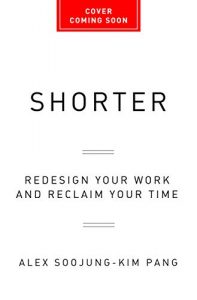
Great answer. All right. We need to wrap up here and get our listeners to check out your books and your stuff. Where should we send our listeners to? Obviously, Amazon of course, but where else should they go on the web to learn more about these subjects?
I’ve been following up on rest and also talking about my latest book on my blog which is deliberate.rest. Rest is now a top-level domain which is an important sign of the importance of it in our lives. I’m also more active on Twitter than I probably ought to be and my handle there is @askpang. Then, of course, Rest is available in libraries and bookstores. My next book about the 4-day week which is called Shorter will be out early next year, I believe in March. Again, available through Amazon, IndieBound, and everywhere else you find books.
Awesome. Thank you so much, Alex, and thank you, listeners. Now, go take a nap. This is your host, Stephan Spencer, signing off.
Important Links
- Twitter – Alex Pang
- Instagram – Alex Pang
- LinkedIn – Alex Pang
- Deliberate.rest
- Rest
- Shorter
- Deep Work
- Profit First
- The Rise of Superman
- Lisa Betts-LaCroix – previous episode
- Cal Newport – previous episode
- Will Henshall – previous episode
- Mike Vardy – previous episode
- Ephraim Olschewski – previous episode
- Nobel Laureate
- Microsoft
- PWC
- Microsoft Research Cambridge
- Phlebotomist
- Oura ring
- Pomodoro method
- Ernest Hemingway
- Charles Darwin
- Ludwig Beethoven
- Carl Jung
- Netflix
- YouTube
- Focus@Will
- Hans Zimmer
- Pirates of the Caribbean
- Dunkirk
- Spotify
- Dan Sullivan
- Mike Michalowicz
- Tony Robbins
- The Rise Of Superman Summary
- Jonathan Smallwood
- Cambridge
- Hermann von Helmholtz
- New York Times
- The New Yorker
- Financial Times
- Guardian
- Stanford University
Checklist of Actionable Takeaways










 About Alex Pang
About Alex Pang
Alex Pang is the author of four books, including Rest: Why You Get More Done When You Work Less and Shorter: How The 4-Day Week Can Save The World.
Disclaimer: The medical, fitness, psychological, mindset, lifestyle, and nutritional information provided on this website and through any materials, downloads, videos, webinars, podcasts, or emails is not intended to be a substitute for professional medical/fitness/nutritional advice, diagnoses, or treatment. Always seek the help of your physician, psychologist, psychiatrist, therapist, certified trainer, or dietitian with any questions regarding starting any new programs or treatments, or stopping any current programs or treatments. This website is for information purposes only, and the creators and editors, including Stephan Spencer, accept no liability for any injury or illness arising out of the use of the material contained herein, and make no warranty, express or implied, with respect to the contents of this website and affiliated materials.
LOVED THIS EPISODE
Please consider leaving me a review with Apple, Google or Spotify! It'll help folks discover this show and hopefully we can change more lives!
Rate and Review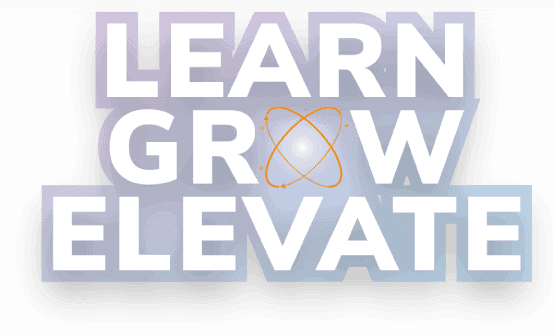
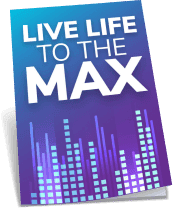
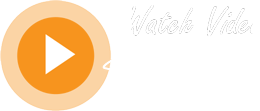





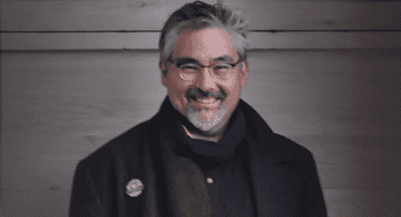
 About Alex Pang
About Alex Pang